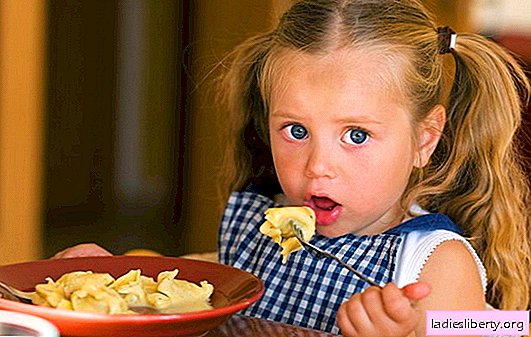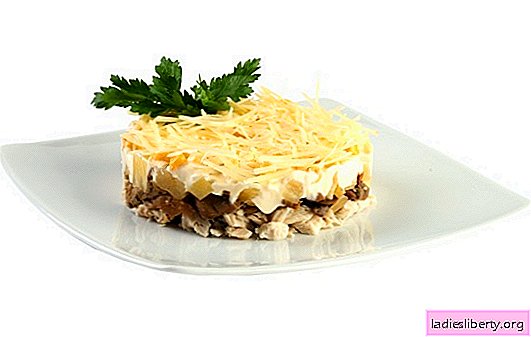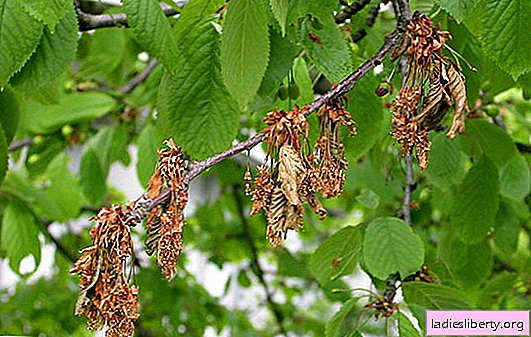
Why does the baby regurgitate after feeding? A rare parent would be lucky who did not ask such a question after the birth of a new family member.
What is dangerous regurgitation? Why does this process occur? What should I look for? How to behave correctly? Answers to all these questions you will learn in this article.
Causes of regurgitation in babies
It is believed that the main reason is the ingestion of large amounts of air. It simply does not fit in a small stomach, because it comes back in a form that scares and alarms all parents.
Also, pediatricians indicate such factors that cause regurgitation:
1. Wrong mode of the day and feeding. Remember, if you want your child to feel discomfort as rarely as possible, then the feeding process should be strictly by the hour. To previously eaten milk had time to fully digest.
2. Sucking too active.
3. When feeding, the nipple is incorrectly applied. The result is a gap between the baby’s mouth and the breast. The same situation can be insidiously waiting for artificial children. A large hole in the nipple provokes regurgitation.
4. Increased gas formation in the gastrointestinal tract. Here, everything is directly interrelated with improper nutrition of a nursing mother.
Regurgitation can be caused either for one reason or by several of this list at once. If you have noticed errors in how the day regimen is constructed or do not limit yourself in food, then try to correct the situation as soon as possible.
An exception to all the rules is the banal intolerance of breast milk. Yes, yes, before you could think that milk is the best thing you can give to your child, but in fact, such unexpected turns happen. This problem should be referred to a doctor you can trust. His task is to prescribe a mixture with antireflux action.
Physiological causes of regurgitation
By the way regurgitation in most cases is a common condition that will pass in 6 months. It is all about certain features of the structure of the upper digestive tract in infants. Among them:
• short esophagus;
• mild narrowing of the esophagus;
• weakness of the lower circular muscle;
• underdevelopment of the muscle sphincter at the entrance to the stomach;
• unformed food promotion system in the gastrointestinal tract, and so on.
But as in any process, there are also some pitfalls, or rather factors that are worth paying close attention to in order to avoid the occurrence of diseases.
When burping after feeding carries danger
Of course, each case is individual, therefore the ideal option is when mother always knows who to turn to.
• Regurgitation can be a threat if it occurs after each feeding, and the volume is constantly increasing (the norm is from 5 to 30 ml at a time). If you cannot understand the volumes that your child gives out, simply pour a couple of tablespoons of milk onto the table and compare it with the result of regurgitation;
• The mass has a greenish or yellowish color, in which mucus or streaks of blood are seen;
• The baby points you to abdominal pain when regurgitating;
• The child does not gain weight and noticeably lags behind the age norms in modern standards.
Very often, this unpleasant and alarming process becomes more frequent with acute respiratory viral infections, fever or intestinal infections.
Why do we constantly point out the communication with experts? Sometimes regurgitation is normal, and after a couple of months it is a symptom of the pathology of the gastrointestinal tract, liver, nervous system, and metabolism.
Systematic regurgitation "fountain"
This phenomenon in newborns is considered the most dangerous. If you have noticed this look, then rather to the doctor! No advice experienced moms in the world wide web will not be a lifesaver, and may lead to irreversible processes. The kid may even choke on his own vomit.
What does the fountain regurgitate?
• obvious problems with the gastrointestinal tract;
• result of birth injury to the brain;
• Enteric infectious disease or poisoning.
If there was a brain injury, only a pediatric neurologist will help.
Belching through the nose
Rarely, but there are situations when a child belches through his nose. This phenomenon is also very dangerous. It leads to the development of polyps and adenoids. In the future, there will be a need for surgical intervention.
The integrity of the mucous membranes of the nose and sinuses is broken, due to hydrochloric acid and lumps of milk protein. If this happens to your baby regularly, you must get a pediatrician consultation.
When not to worry about regurgitation after eating
But how to understand whether you should worry and consider regurgitation a part of the norm, or is there a problem? Remember a few rules that will be very useful to you in the future:
• After regurgitation, the child behaves calmly and does not cry. There is no talk of irritability or lethargy.
• With a chair all is well.
• Springwell does not sink.
• The baby does not lose weight, but systematically and constantly increases its mass.
• The baby does not regurgitate the fountain.
• The baby does not regurgitate through the nose.
In these cases, there is no reason for concern.
How to prevent (reduce) regurgitation in a child after eating
1. Do not feed the baby in a horizontal position. Ideal semi-vertical. The head and upper body should be at an angle of 60 degrees to the floor.
2. Before the procedure, practice a small massage of the abdomen, and lay the baby on the tummy for a few minutes.
3. Always feed your baby at the same time.
4. Do not feed a crying baby. Reassure the baby to tune in to a calm and pleasant procedure.
5. If the child eats milk formula, then be sure to keep it warm.
6. Hold the bottle at such an angle that the nipple is completely filled with the mixture.
7. After eating, lift the baby "column". Sometimes you have to keep the child and 20 minutes. In this state, regurgitation occurs much less frequently. Baby just give the air.
8. Be prudent. Put a diaper over your shoulder or knee when feeding.
9. Forget about active games after feeding. Give your baby some time to relax.
10. Milk formula should be selected, following the recommendations of the attending physician, and not a discount in a supermarket or pharmacy.
What tests are needed if there is concern
If the recommendations do not help and you are plagued by doubts about the nature of the regurgitation of the newborn, the child loses weight, then you should figure out what diagnosis will show the most correct result and give you accurate recommendations for treatment.
• ultrasound procedure;
• X-ray;
• general clinical blood test;
• analysis of feces.
There are other diagnostic tests that a doctor can prescribe if necessary.
It will take quite a bit of time, and you will learn the main thing - the reason.
Some conclusions
Statistics show that many children stop belching after they learn to sit. But recall, each case is individual. Sometimes you will observe small puddles near the baby and at 7 months.
If regurgitation is a simple immaturity of the digestive tract, and the child feels good, then it is not necessary to sound the alarm. The organism will develop, very soon everything will fall into place.
Remember that now your best friend and helper should be a children's pediatrician. Anyway, at least one conversation about the nature of regurgitation in a baby does not take much time, does not become redundant, allows you to calm down, and possibly save the child from negative consequences.
In conclusion, I would like to say about the method that helps many modern moms avoid negative effects of regurgitation on clothes and furniture. Let you always have a small bottle of water and soda near you. Simply rub the fabric with the contents of the bottle. This combination will not allow stains to fix and will relieve furniture, clothes from an unpleasant smell.
Child's health is the most important thing you have. Be careful and then you will not have time to look back, and you face a healthy adult who is sincerely grateful to his mother for his care. Burping babies - it sounds scary only when you gain experience with the firstborn. But if you look at the situation in detail, it can be understood that the problem itself is not terrible and cannot be eliminated. If you remember everything we wrote about today, then you know what to do in a controversial situation - make a visit to the doctor.
We wish you and your child good health and good mood!











